You are both seekers. What does spirituality mean to you? And in what ways does that manifest in your books?Haviva: I am a seeker. I have been for as long as I remember. But it became especially urgent when I was diagnosed at age sixteen with a degenerative genetic muscular disease; I felt abandoned by God and was looking desperately for order and control. I grew up Orthodox Jewish, so that system was the only one I had for meaning making, but that framework did not suit my free spirited soul. My spirit wanted to be free, to surrender to the mystery, but that was a terrifying notion. I spent many years looking for validation and answers outside myself, trying to contort myself to fit into the rigidity of traditional Judaism, until I realized this was spiritual bypass. I would only find inner peace if I healed my sacred wound, if I addressed my spiritual need for life to be fair. It’s about learning to surrender to the Universe, to What Is and Will Be, to the Flow of Life, not to be protected from suffering but to be held in your suffering.
You both live in Israel, and the reality in Israel features in your books, but Orna was born and raised in Israel and Haviva moved there only in her twenties. Do you think this affects your writing?Haviva: Yes, I do. One reason I wrote Hope Valley was to explore the idea of what it is like to move to Israel out of Zionist ideology only to find after moving there that the narrative you were told is only part of the story. That is what happened to Tikvah and is part of her struggle. This theme is also part of my memoir, since that is my reality as well. I am not living in a house that once belonged to Palestinians, and I do not have a diary hidden in my house written by a man in 1948. That is all in Hope Valley, and that is all fiction. I chose that scenario to heighten the tension and dramatize the conflict in this microcosmic way. But these are issues I, myself, struggle with. People who were born here into the conflict face this as well, but in a different way, because they did not pick up and move and choose to make this their home out of some kind of righteous mission. I did. And I do still believe that Jews have a right to be here. But so do Palestinians. And that is the challenge. How can we recognize each other’s narratives, acknowledge each other’s pain, and find a way to live here together in peace? Orna: I was born in Israel, just over a decade after the establishment of the state, so I was born into the conflict, a part of it, whether I wanted to be or not. The Palestinian Israeli conflict has always played a part in my life, looming ominously in the background. As a small child I was always told never to pick anything up off the ground, to beware of any object left unattended, etc. Later, it was me warning my kids. Be aware. Be vigilant. Pay attention to your surroundings, to unknown people, objects. Even buses were a no-no for many years. Since it has always been part of the background of my life, the conflict is also part of the scenery of my work, but just like I have never let myself be defined by it, my work is not defined by it either. I am not an activist and my writing is not a call for action, although it always tries to offer an optimistic, hopeful outlook. In reality, I live in Jaffa, a mixed city, striving for harmony and co-existence, the same aspects I try to stress in my writing. Towards the end of the novel, Lily discusses the conflict: “Every now and then violence erupts between them, as Allah and Hashem go at it once again. I don’t think it will ever end.” In my writing, I try to look at the good, at the unifying aspects instead of the differences. I believe it is only the individual who can make a difference, who can bring about change. Identity is a big theme in all three books. Can you expand on that? Haviva: In Hope Valley, both Tikvah and Ruby learn to stretch themselves beyond their cultural boundaries and connect on a basic human level. There is also a backstory of a love affair between Ruby’s father, Jamal, the father of the lost diary, and Marie, a Holocaust survivor who was hidden from the Nazis in a convent in Belgium and then taken to Palestine (which then became Israel) after the war. She struggles with her identity, as does Jamal, who has a Christian mother and a Muslim father. That is a big theme in the book. Mixed breeds. The dog, Cane, who is also a main character in the book, is also a mixed breed. Others are, too, but I do not want to give away the end. Suffice it to say, one message of the book is that we are all connected. In Dreaming Against the Current, identity also plays an important role, as it is on one level about my shedding of various constructed identities in order to discover my most pure, essential one, by listening to my soul. Orna: The Pink Balloon is an attempt to wake people up, to make them question who they really are. The book does this by challenging our concept of identity through the story of a young woman and a pink balloon. The pink balloon is a meditation technique the protagonist learned as a child, and is the only constant in her life, helping her to navigate between her assumed identities, as she moves through different continents, cultures, and religions. The question “Who am I?” reverberates throughout the book. Lily is born in Venice Beach, California to a Palestinian mother and an Israeli father. When they separate, she goes to live with her mother’s family in a conservative Palestinian community, where she becomes Lila and is raised as a Muslim. After her mother dies, her father takes her to Israel, where he has built himself a new life in an illegal settlement on the West Bank. Here she becomes Lia and converts to Judaism. When she realizes an arranged marriage is in the cards, she runs away to India, where she feels her parents’ as well as her own story, really began. She creates a new identity and calls herself Leela, as she embarks on a journey of discovery, bent on finally finding out who she really is. Forced by the events of her life to repeatedly construct a new identity, only to later deconstruct it, she finally realizes that she was never who she thought she was and is set free to be whoever and whatever she chooses to be. Why do you write? What do you want your writing to bring? Haviva: I write because I love it. I do not watch television. I read and write. I also love films, but I only watch them occasionally. Reading and writing are my fallback activities when I am not working as a spiritual companion, officiating ceremony at the mikveh (ritual immersion pool) I run on my kibbutz, swimming, walking in nature, or working with mine and other people’s dreams. That is, putting aside being with family and friends. I love the writing process. I find it spiritual. It is my favored form of expression. And it is also a process. I discover as I write. Things emerge. I don’t sit down with a definite plan. I sit down with an idea, a thought, an image, a scene, but it happens as I write. It’s magical. I feel a divine connection when I write. There are better days and worse days. Not every day feels so inspired. But when it does, it can be profound. It feels like I am spiritually aligned, doing what I am meant to be doing in this world. I also write to process my own feelings. And to send a message to the world, or at least to my readers. As much as I love the writing process in and of itself, I also write for others, not just myself. When people read my work and tell me how it touches them, that is definitely part of the reason I write. It’s not all of it, but it is a big part of it. Orna: Writing has always been my vehicle, my way of making sense of the world. It has always given me a perspective, a sense of order, a clarity. Those are the personal gifts writing has given me, and I’d like to use them wisely. Mostly I’d like my writing to present a different voice, a voice I feel is sorely lacking. Darkness has loomed large in Western literature, from Baudelaire’s Fleurs du mal, Eliot’s Wasteland and Conrad’s Heart of Darkness, just to name a few. And it’s true. The world is replete with cruelty and ugliness. But there is also a great light, a huge pillar of light marching besides the dark. And it is growing. It is growing by leaps and bounds as more and more people try to better themselves, choosing good over evil. Western literature has become focused on the black, threatening aspects of the world, neglecting the good sprouting up all around us. I’d like my writing to be a celebration, a small beacon reflecting and magnifying the light I see shining besides the dark. Visit Haviva Ner-David's author page and Orna Taub's author page to learn more about them and their books.
0 Comments
People keep asking me: Do you think the Russian people know what’s going on? Do they know that Putin has sent the Russian Army to invade Ukraine? They know. They may not know the full extent of Putin’s folly, but they know their country has become a pariah in the community of nations. They know that they are going to suffer in blood and treasure for this naked aggression that the Russian media is forbidden to call “war.” They know that Russian celebrities, opera singers and Bolshoi dancers have shouted, "No to war!" They know that Echo Moscow and TV Rain have disappeared from the air. They know when they hear from their brothers and sisters and cousins and grandparents in Ukraine, and they fear for them. They know that their sons thought they were heading west for training exercises and now they know they might come home in body bags or their ashes in plastic bags. They know that the ruble has lost half its value, and they know they can't get out of the country no matter how much they would like to. They know and they are very worried. They know even if they will never admit it and even berate those who will say it out loud. But they know. Those who grew up in the Soviet period learned at their mother’s knee how to know something they could never acknowledge to another soul. They knew you could get real meat at the shoe store in the alley two streets over when there was only pickled pigs feet in the neighborhood shop. They knew when a neighbor disappeared in the night. They knew when a colleague slipped “samizdat” (an unauthorized manuscript or censored document) into his bag. They knew but they could never show in any way that they knew. They had to “unknow” it — and they got very good at it. Today they’re “unknowing” this war. They have to. To acknowledge it would drive them mad. Michelle Carter is the former managing editor of the San Mateo Times. Throughout 1995, she travelled across the 11 time zones of the world’s largest country as the U.S. Information Agency’s Journalist-in-Residence in Russia. She is the author of two books, From Under the Russian Snow (Bedazzled Ink Publishers, 2017) and Children of Chernobyl: Raising Hope From the Ashes (Augsburg, 1993).
It has long been my belief that every life is a story worth telling, a position I am often called upon to defend. Over the years, when talking to students in my memoir-writing classes, to book clubs, to family and friends, and even to fellow writers, I have underscored the importance of leaving a written record of one’s time on Earth. But more often than not, the reasons I offer for doing so meet with reluctance. I am undeterred. For every lame excuse, I have a ready response. I’ve never done anything interesting enough to write about. Oh yes, you have. When you were a child, did you dig a crater in your mother’s rose garden, hoping to get to China? Did you gouge out a tunnel and reinforce the walls with cast-off bricks, tamp down tasseling grass in an autumn meadow for a secret fort, build a tree house out of scrap wood? Did you drag pillows and blankets from your bed on snowy Saturday mornings, drape them across overturned chairs, and pretend you are tent-camping on a wintry mountaintop? Kids do things like that; it isn’t unusual. But if you did, and if you went on to a successful career as an architect, an engineer, landscaper, video game designer, or any occupation that involves building things, well then, the link between your childhood pastimes and your adult pursuits can be the theme of your memoir. The same would hold true for an early interest in art, mathematics sports, cooking, music, etc. But nothing dramatic has ever happened to me. Oh really? The fact that you never pulled a baby from a burning building, guided a plane to a safe landing after the pilot lost consciousness, or sang a duet with Springsteen hardly means you have suffered from a dearth of drama. Drama can be on full display or well hidden. On the one hand, if your mother’s tattered rose garden was a top contender for a World Federation of Rose Societies trophy, your Sino-American excavation likely ended in drama. If you crept head-first into a homemade tunnel right after a drenching rain and got almost out before the walls collapsed, that’s certainly dramatic. If you invited 16 of your best friends up to that rickety tree house and then accompanied 11 of them to the emergency room, well, you get the picture. Often, though, the drama is all on the inside. Think of your first spelling bee, first piano recital, first day of high school or college. Remember the evening you got down on one knee and proposed to your sweetheart or got out of your car to help a stranded motorist. How about the time you were driving the kids’ carpool and almost got stuck between the guard arms at a railroad crossing? In the throes of situations like that, you might have appeared to be the picture of calm. All the drama was invisible to others, out of sight but ever so real. How you managed to carry on despite a galumphing heartbeat, blood turning to ice, tingles pattering up and down your spine, and a stomach gone to knots and curdles, that’s your story. That’s the theme of your memoir. But your life is so much more interesting than mine. This is your memoir, your life story. No one else’s. British author Neil Gaiman said it best: “The one thing you have that nobody else has is you.” Does a memoir have to have a theme? What’s a good theme? There’s no hard and fast rule about that. The theme of your memoir is likely unique to your life, but it should also touch upon some sort of universal truth. What my dogs have taught me. Unexpected events shaped my life/my career/ my character. The challenges I’ve faced and overcome. My rotten childhood motivated me to be a good parent. Okay, but I don’t remember much about my early life. How do I write about it? Did you ever take your father’s car out for a joy ride, and lose the keys? Did you show up empty-handed at the front door of your prom date and die a little because you left the corsage at home? Leave a pot of oatmeal on a hot stove while you took a long shower? Fail to set a wake-up alarm on your wedding day? Your memoir could itemize the ways your forgetfulness has complicated your life, and then go on to the ways it has enriched your life. It’s a terrific theme. I’m worried about what my friends and family might think if they read about themselves in my memoir. And so you should be. Concerned, surely. But there should be no call for worry if you write the truth, if you treat others in your memoir fairly, if you describe them but don’t judge them. Feel free to reveal your feelings about them, but beware of ascribing to them emotions, intentions, motivations, or unspoken thoughts. Respect those deserving of it; as for the rest, remember that in a memoir, generosity of spirit is a more likeable attribute than bitterness. And in the end, alter their identities beyond recognition. But I’m not a writer! I know. You don’t have to be. My spelling is terrible! So hire a proof-reader. Where do I start? Anywhere but at the beginning! Give it a half hour over morning coffee or an hour in the evening after the dishes are done. Start by assembling short anecdotes on index cards, then lengthen each one into a miniature story, complete with a beginning, middle, and end. When you have a couple of dozen “memory stories,” you will realize the theme of your memoir, the element that makes each chapter distinct but cohesive. Nobody will read my memoir. Oh, I beg to differ. Give a copy to your children; they’ll thank you and then put your masterpiece on a shelf. But eventually, they’ll rediscover it, and find themselves absorbed in the unexpected drama of your “ordinary” life. Reserve a signed copy for each of your grandchildren, too. Your story will fascinate them because it will read like ancient history. Give copies to your siblings and friends, too. Offer your memoir to your local library, to the manuscript acquisitions director of your city or state historical society, to a genealogical society. There is intrinsic value to writing your life story and to sharing it with others. This is how I put it in my new memoir, Recorder of Deeds (2022, Bedazzled Ink): "Let the record stand. Let it be passed from mother to son, father to daughter. Let it color every late-night recitation of memories that animate the history of an American journalist. Let it imbue every accounting of my actions and temper every assessment of my character." Above all, be encouraged by these words from author Suzy Kassem: “The only walls that exist are those you have placed in your mind.” Catherine Underhill Fitzpatrick is a former newspaper feature writer, the author of four published books, including Recorder of Deeds, and a member of the Colorado Authors League.
My local newspaper asked me to write an op/ed piece about the Ukrainian invasion and, to launch this conversation, I thought I would share it with you: Russian President Vladimir Putin has launched an invasion to pummel Russia’s sister republic Ukraine into submission. We are stunned at the depth of Putin’s naked aggression — but we shouldn’t be surprised. Putin was plucked from the shadows of the KGB to be president of Russia in 2000 when the Soviet Union wasn’t yet cold in its grave. Boris Yeltsin had presided over Russia’s first post-Soviet years as an open society and nascent democracy, but his hand-picked successor had other plans for the planet’s largest country. Early on, he described the fall of the Soviet Union as the 20th Century’s greatest geopolitical catastrophe. He whipped up a frenzy of hate around Mikhail Gorbachev for surrendering the political and military power of the USSR and boasted that he alone could restore Russia to the heights of power. Over the past two decades, he’s managed to whittle away at everything open and democratic that he inherited and to sculpt a repressive authoritarian Russia in the image of the Soviet Union. The resurrection would be nearly complete — except for the absence of the 14 other Soviet republics which became independent states when the USSR dissolved in 1991. Sovereign states, I might add, most of which don’t share Putin’s global vision of Russia restored to glory. So why are those missing republics such a headache to Putin? Take a close look at a map of the western edge of Russia. All those countries that climb from the Caucasus in the south to the Baltics in the north — Georgia, Ukraine, Belarus, Lithuania, Latvia and Estonia — served as a buffer between the USSR and the West (with a capital W). And it was from the West that the greatest political and military threats to Russia have come. In 1812, it was Napoleon Bonaparte, whose troops actually occupied the city of Moscow. In 1942, it was the Nazis who stormed onto Russian soil only to be stopped at Stalingrad, site of perhaps the bloodiest battle of the Great Patriotic War. (Putin recalled this moment of Soviet greatness in his invasion speech on Thursday, describing the leaders of Ukraine as “neo-Nazis.”) The West became the nemesis of every Soviet leader. At the end of World War II, the Iron Curtain cleaved the continent in two and extended the buffer to include the entire Soviet Bloc from Berlin east to Russia itself. Then Gorbachev let it all get away when he let the Berlin Wall fall without a fight. In two short years the USSR was gone as well. And what of those buffer republics that got away? Latvia, Lithuania and Estonia, the last to be forcibly absorbed into the Soviet Union, scrubbed themselves clean of all the Russification they had had to endure and rushed into the open arms of NATO, the West’s military alliance. Georgia walked a careful path between east and west and still got itself into a bloody encounter with Russia in 2008. Ukraine tapdanced between leaders who did Putin’s bidding and those who maintained a strategic distance, but it still suffered the indignity of Russia seizing Crimea eight years ago. The one outlier has been Belarus with its thug Alexander Lukashenko wielding a heavy hand in Europe’s last autocracy. Lukashenko is snug in bed with Putin, opening Belarus to Russian tanks and missiles for “military exercises.” At the moment, it seems pretty clear that Putin sees subjugating and swallowing Ukraine, the largest country in Europe, as his path to restoring Soviet glory and re-establishing his buffer to the West. Snatching the Crimea was just to test the waters, to see how much NATO and the U.S. cared. Apparently, not enough. But this time NATO and the U.S. have forged a remarkably tight coalition to punish Putin for the invasion of Ukraine, but that will offer little solace to the people of Ukraine — most of whom have family members in Russia — who will suffer to satisfy Putin’s taste for glory and grandeur. Those thousands of Russians marching and chanting “No to war!” in Moscow and St. Petersburg testify that Putin may have overplayed his hand this time. Millions more are huddled at home, worrying that they will pay a substantial price in blood and treasure for Putin’s folly. Michelle Carter is the former managing editor of the San Mateo Times. Throughout 1995, she travelled across the 11 time zones of the world’s largest country as the U.S. Information Agency’s Journalist-in-Residence in Russia. She is the author of two books, From Under the Russian Snow (Bedazzled Ink Publishers, 2017) and Children of Chernobyl: Raising Hope From the Ashes (Augsburg, 1993).
|
Bedazzled Ink AuthorsBlog posts from our authors. Archives
January 2023
Categories
All
|
Books & Imprints |
Information |
Contact |
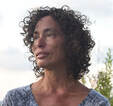
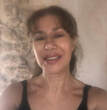
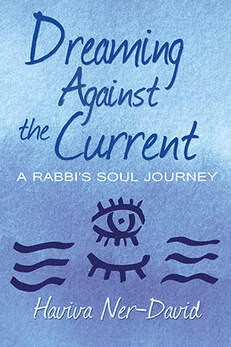
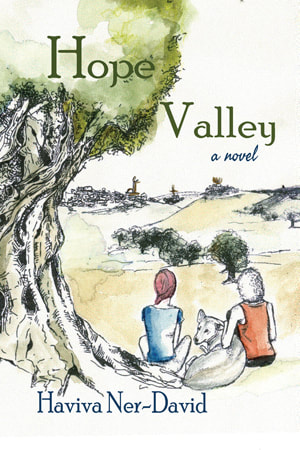
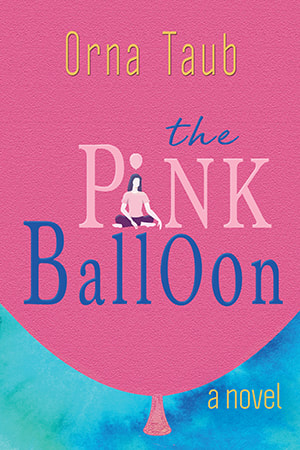
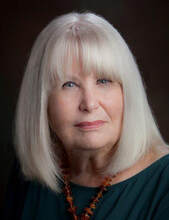

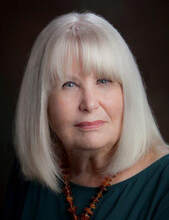
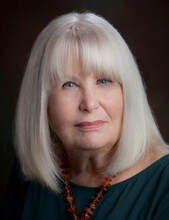
 RSS Feed
RSS Feed